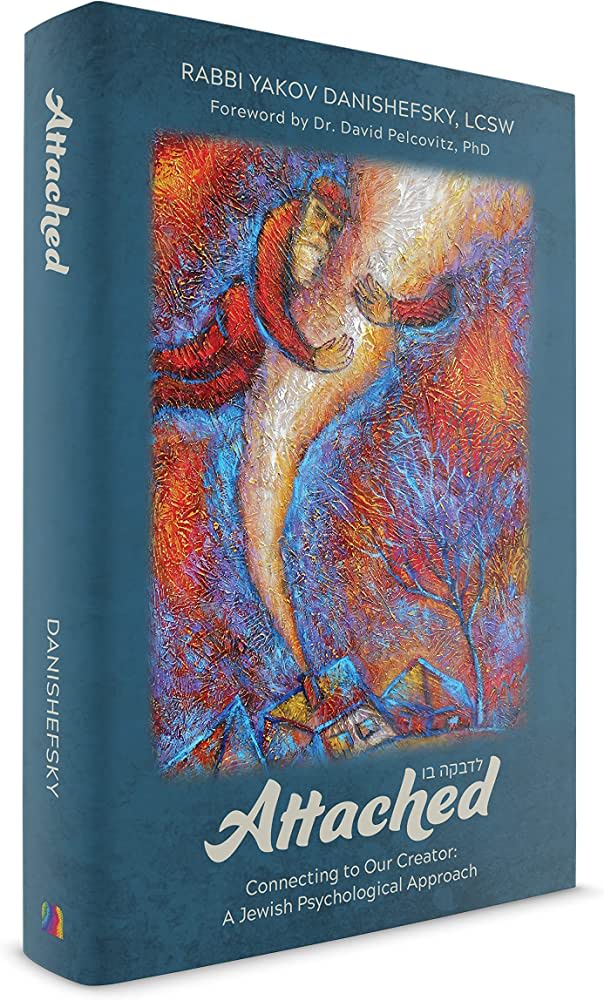
The Present is a Present
Be it the icy prison of Siberia, or the physical confines of a hospital bed, or the time limitations of family obligations, if we use every experience...

Be it the icy prison of Siberia, or the physical confines of a hospital bed, or the time limitations of family obligations, if we use every experience as a tool towards growing closer to the Almighty, we can turn our "barriers" into bridges.
"People often imagine that the barriers they experience in their efforts to serve God are so great that they will never be able to break them. But this is not true. No one is ever confronted with barriers he cannot break if he really wants to. God only sends a person obstacles that are within his capacity to overcome if he is really determined enough. If he thinks about it carefully, he will realize that the obstacle is really a veil for God Himself. In reality there are no obstacles at all. They are simply an illusion" (Likutey Moharan 46).
Barriers, obstacles – there seems to be so many things in our lives that prevent us from doing the things we really want to do, from accomplishing what we really want to accomplish. We dream of studying Torah, yet we have financial obligations to meet. We want to move to Eretz Yisrael, but our job and family is in the Diaspora. We would like to do so many things with our lives, but the reality of financial obligations, moral obligations, limitations of our time, energy and money prevent us from fulfilling those dreams.
Yet, according to Rebbe Nachman, these obstacles are nothing more than figments of our imagination! They don’t exist! We have the ability to overcome them. But we see that they DO exist. The world is not at our fingertips. We cannot have everything. We have limitations.
Rebbe Nachman, however, is referring to spiritual barriers – things that are preventing us from growing in our own avodas Hashem, in our own spiritual path. Even those things that appear to be barriers were put there by the Ultimate Planner for our own spiritual development.
Let’s take, for example, a young married man who would like to devote his days and nights to Torah study. But the doctor ordered his wife to remain in bed and he has no choice but to cook the meals, do the laundry and take care of the children. In between everything, he somehow manages to snatch a few moments of learning and prayer. At night, after he tucks the children safely in bed, he spends a few minutes talking with his wife and then races off to join his evening Gemara shiur.
Walking home with a close friend after maariv, he complains, "I’m exhausted! Everything’s falling on my shoulders. I can’t learn. I barely have time to daven. I feel as if I’m going nowhere – I want to grow spiritually, but instead, I’m stuck with the diapers."
The budding Torah scholar views his wife’s inability to function as an obstacle in his service of God. The real obstacle, however, is in the way he views the situation. Yes, I definitely applaud his sense of dedication and responsibility toward his family. But if he would just change his perspective, he would be able to take advantage of this seemingly difficult time as an opportunity for personal growth and spiritual elevation.
First of all, WHO created this situation? As a religious Jew, we know that everything that happens occurs because Hashem wants it to happen. We also know that everything that happens in this world is for our benefit. So obviously, there is a reason for this man’s wife being bedridden.
I once heard a true story that poignantly illustrates this point:
Two very special Russian Jews were sent to Siberia for the crime of being religious and teaching Torah. They spent their days in backbreaking labor, felling enormous trees in the icy forests. At night, they collapsed into bed.
Although they barely managed to pray or learn Torah, as they went about their jobs they gave themselves and each other chizuk (encouraging words), and constantly spoke to God, pleading with Him to keep them strong in their love of Him and to release them from their icy Siberian prison.
Often, deep in the night, when all the other prisoners were sound asleep, the two men would speak about the future. Both expressed a deep all encompassing yearning to escape the Soviet prison and move to Eretz Yisrael, where they would be able to daven and learn Torah freely.
Their dreams were eventually realized. Both men were released from Siberia and given permission to leave the Soviet Union. They moved to Yerushalayim, where they spent their days catching up on all the learning they had missed.
One day, the two men met on the bus from the Kotel and started reminiscing about their years of backbreaking labor spent felling trees in Siberia.
"Do you remember," one asked the other, "how we would quickly catch a mincha, davening behind the trees while hoping that none of the guards would catch us? Those prayers were so sweet, so filled with yearning. They were so real." The elderly Jew gave a bitter smile and continued, "I would trade all my prayers at the Kotel for the opportunity to pray like that again – just one more time…"
* * *
Sometimes we experience the greatest spiritual growth when we think that we are "imprisoned in our circumstances." Be it the icy prison of Siberia, or the physical confines of a hospital bed, or the time limitations of family obligations, if we use every experience as a tool towards growing closer to the Almighty, we can turn our "barriers" into bridges. And sometimes, as in the above story, the yearning itself is sweet. Reb Nossen pointed out that in Hebrew, the word "meneyus," "barriers" have the same letters as the word "ne’eymos" "pleasantness." What we view as "meneyus" are really something to be savored If our budding Torah scholar were to realize that with his wife’s confinement he was given a golden opportunity to polish his middot – character traits – to learn the fine art of patience, persistence and fortitude as well as to deep his relationship with his wife and children, he would use this challenge as a time for greater spiritual growth. As I once heard, "The present is called the present because it is really a gift."
May Hashem grant us the wisdom to use our present situation as a tool to grow closer to Him.












Tell us what you think!
Thank you for your comment!
It will be published after approval by the Editor.